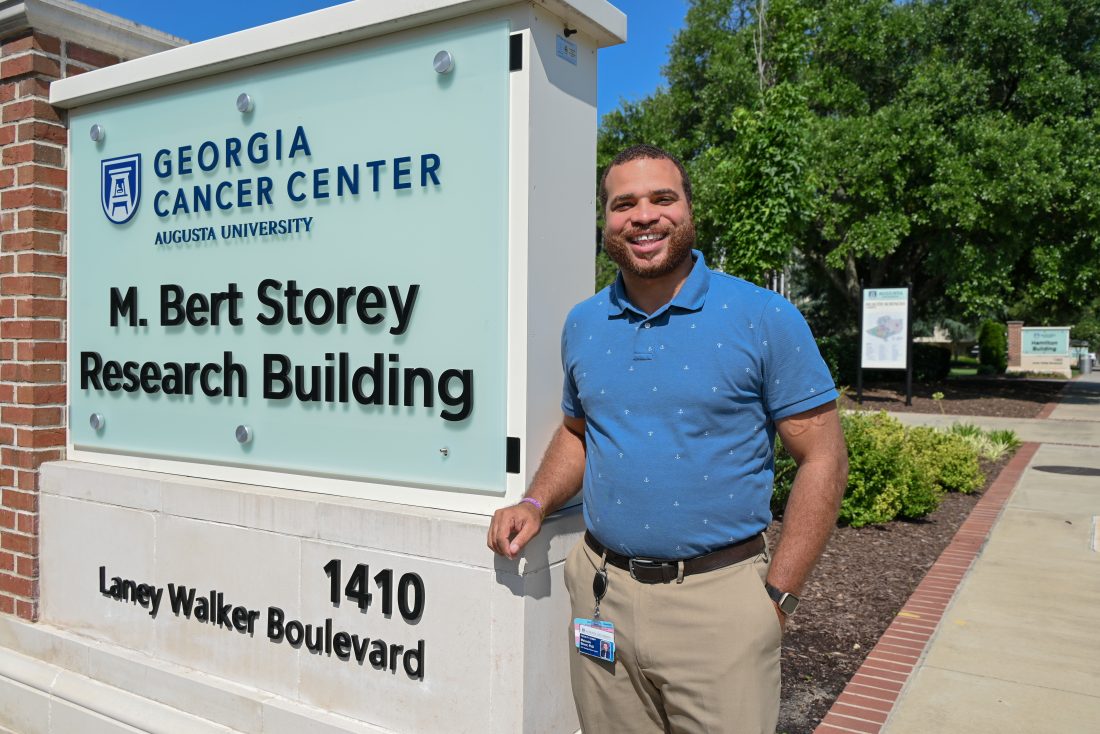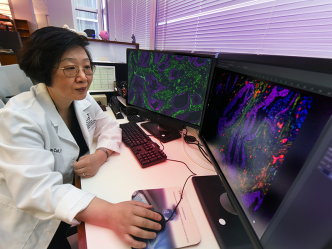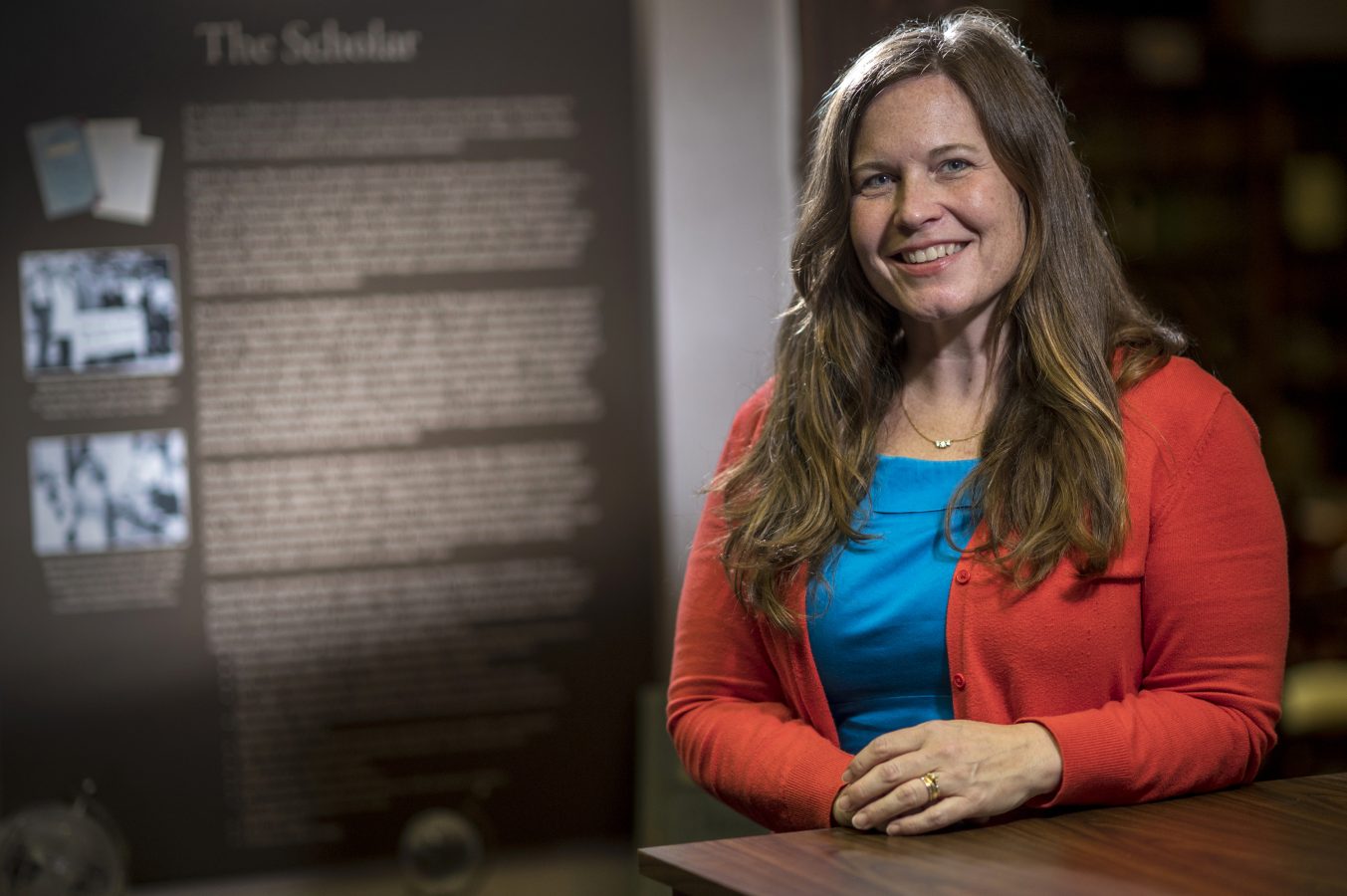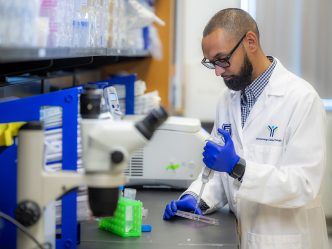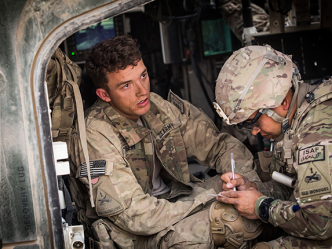It is a key to life, but not every person living in Augusta has the same access to healthy food as their neighbors across the region.
While some communities are covered in fast food restaurants, there may not be as many grocery stores and healthier food markets in the same section of town. This puts individuals and families living in those neighborhoods at a higher risk of developing the types of cancer connected to obesity.
Armed with this knowledge, a team of researchers at the Georgia Cancer Center is working to bring change to their community, thanks in part to Paceline‘s PaceDay, an annual event created to help fund innovative research to improve cancer prevention, advance treatments and move more breakthroughs to more patients.
“I’ve have lived in these areas for a good portion of my life, and I’ve noticed different residents I was involved with during my master’s program and getting my PhD, literally having to choose what kind of food they could eat or afford to eat,” said Malcolm S. Bevel, PhD, assistant professor in the Department of Medicine at the Medical College of Georgia at Augusta University.
“And it really is due to the built environment, as well as other sociopolitical issues, as to why food swamps exist. I wanted to see what was going on with our food environment here in America,” said Bevel, who is also a member of the Georgia Cancer Center’s Cancer Prevention, Control, and Population Health program.
As one of Paceline’s grant winners from PaceDay 2022, Bevel published research on food swamps and their negative outcomes. Paceline is a local outreach fundraiser during which the community and researchers ride bikes on PaceDay. The event is held in October and welcomes the entire community to participate. Its main goal is to honor loved ones while fundraising and bringing awareness to research at the Georgia Cancer Center. One hundred percent of the donations and money raised goes toward innovative cancer research.
The Paceline grant helped support Bevel’s research defining what exactly food swamps and food deserts are and the populations they are affecting, specifically targeting downtown Augusta, which Bevel and his team identify as a food swamp. The closest grocery store is either in North Augusta or along Washington or Wrightsboro roads, areas that also include an influx of fast-food restaurants.
“We created a scoring system to designate what food swamps are, which are when you live more than one mile away from a grocery store in an urban area and you have more pro-inflammatory, unhealthy food options,” Bevel said. “This can make it difficult for residents who rely on public transportation to get to these grocery stores to get healthy food options.”
In his recent study, ”Association of Food Deserts and Food Swamps With Obesity-Related Cancer Mortality in the U.S.,” Bevel talks about the absence of healthy and nutritious food in certain areas and what this can negatively do to the body. The research shows our bodies rely on a healthy diet with nutritious foods to fight off many types of health issues, including cancer.
“To be able to tell the truth about what is going on in America – that food swamps are a detriment, that there is a rising epidemic of food swamps – this allows us to tell a story that residents and other people have been trying to tell for decades and maybe even centuries, and now we can put a name to the face of what it is and what’s going on with the food environment,” Bevel said.
Bevel and his team’s research shows that among most U.S. counties that scored the poorest, according to their ranking system, there was a 77 percent increase in obesity-related cancer deaths.
“I’m thankful for Paceline, and we are going to continue to keep doing this work, so we can also bring community gardens to the people of Augusta and beyond,” Bevel said.
 Augusta University
Augusta University
